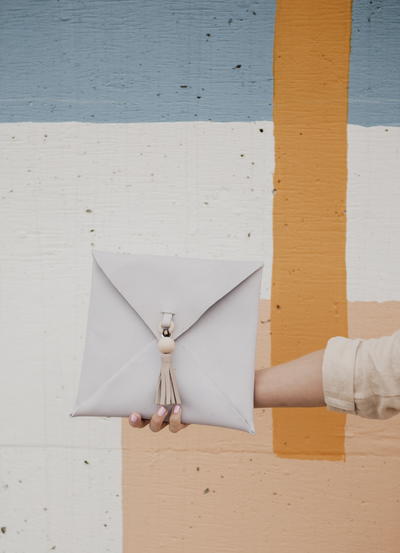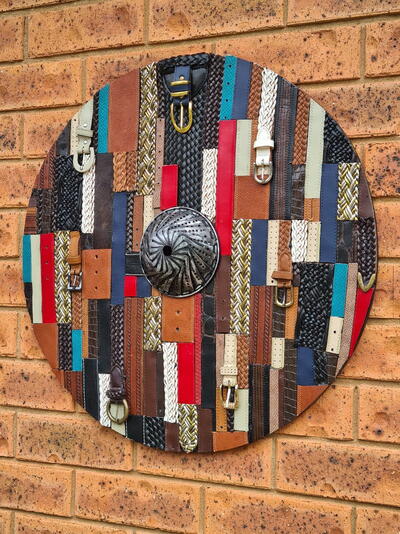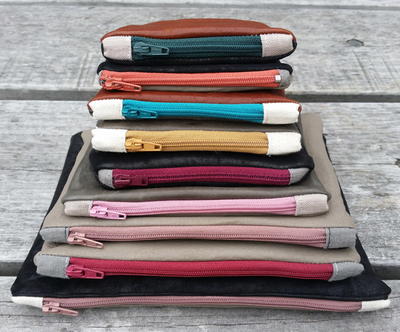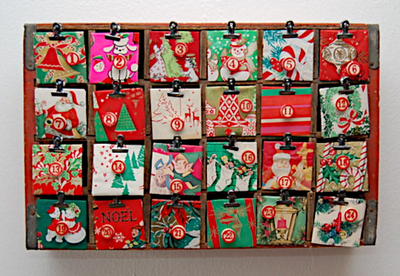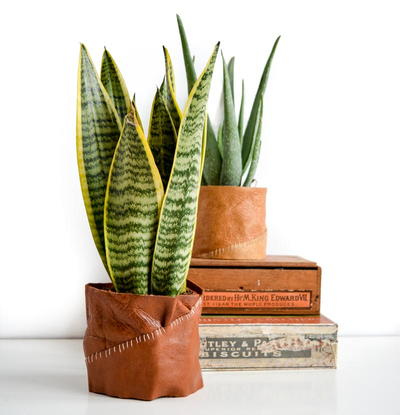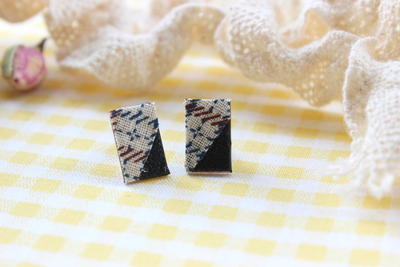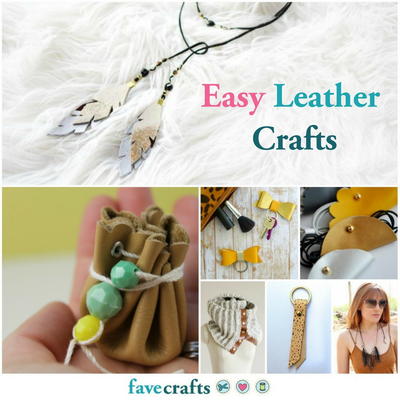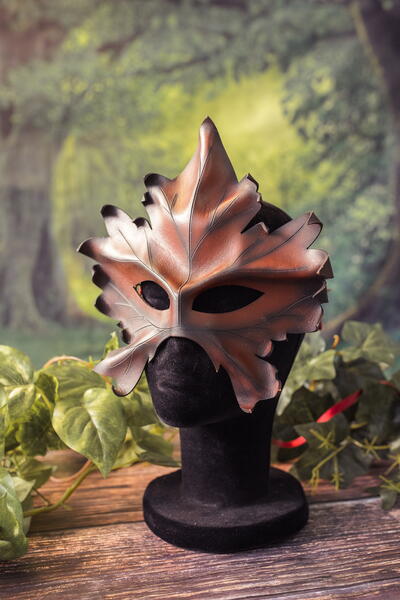Basics of Crafting with Leather
The possibilities are unlimited when it comes to crafting with leather. From belts to purses to saddles to wall art are all within promise with the right supplies and tools. Leather crafting tutorial by Maria Nerius.

Leather Christmas Card by Jim Linnell for Tandy
Materials:
- Vegetable Tanned Leather
- Leather Stamps
- Wood Mallet
- Water in a glass or plastic container
- Clean sponge
- Leather Finish
Instructions:
Most of the leather available to you is vegetable tanned tooling leather. This type of leather must be moistened with clean water before it can be tooled or embellished with design. The process of moistening the leather with a sponge is called casing. You’ll wipe the leather with water on both sides. The top side of leather is smooth while the grain side is rougher, has more texture. Apply the water evenly. Once the leather goes to a darker, more natural looking color, the leather is ready to tool. Experts note that water should be placed in a glass or plastic container and never a metal one as metal can end up staining the leather.
The embellishing tools for leather are called stamped. They are metal and have a shape, texture, or alphabet letter on one end. Place the stamp onto the leather, tap down on the handle of the stamp with a mallet (metal hammers can damage stamps). Hold the stamp upright, tap down straight, lift stamp.
You can apply a leather finish when you are done embellishing your leather. These finishes are used to protect and preserve the leather. Remember that all your leather work should be complete before you start the finishing process. Take a lightly damp sponge and apply a small amount of finish to it, lightly wipe this finish to the embellished side of your leather. Make sure you work the finish into all the cuts, textures, and impressions. Apply a second coat if desired. To increase the shine of the leather you can buff it with a clean soft lint-free cloth or a piece of sheep skin.
Read NextLeather Plant Pot Holder

